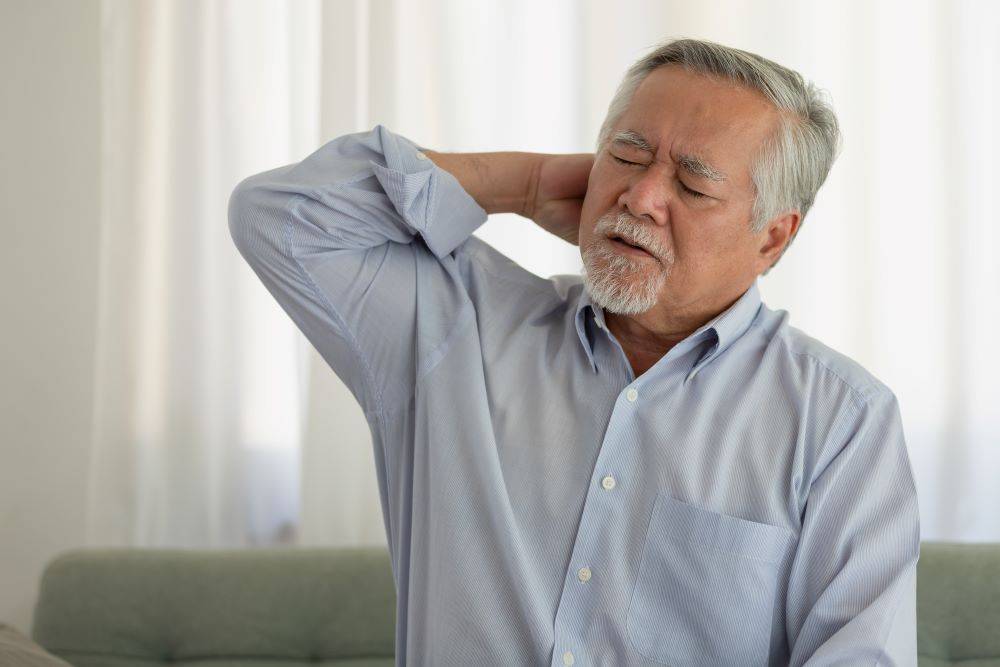Feeling exhausted, irritable, and unable to focus on even the slightest of tasks? Or maybe you have seen a decline in the clarity of your eyesight during the last while. Although these signs and symptoms may appear harmless, they may really be warning indications of a more severe condition, such as high blood pressure. According to the World Health Organization, about one million adults have high BP, and 46% of these persons are unaware of their condition. Due to the insidious nature of high blood pressure, many sufferers go undiagnosed for years.
The warning signs of high blood pressure are sometimes subtle, but this article can help you recognize them.
What is high blood pressure according to AHA?
While hypertension isn't life-threatening on its own, it can lead to other serious health conditions if left untreated. Here are some subtle signs of high blood pressure, you should not ignore:
1. Feeling faint or lightheaded when standing up from a seated position.
2. Having severe headaches with no known cause.
3. Neck stiffness or pain when turning your head up or down more than 20 degrees.
4. Blurred vision or eye fatigue.
5. Difficulty breathing and a faster heart rate at night, or when you're not actively trying to exercise.
6. Seeing spots or stripes in your vision when looking up from close distances.
7. Feeling like you're having moments of tunnel vision.
8. Having nosebleeds more often.
9. Chest pain on exertion but being able to resume regular activities eventually.
10. You feel like you can't get enough air in your lungs when you take a deep breath. This is called chest pain on exertion, or Pectoralis Pain.
11. Urinating more than usual.
12. Feeling fatigued frequently.
If any of these signs describe you, it's important to see your healthcare provider for a diagnosis and treatment plan.
How Do I know if I am at a risk of developing a high B.P?
If you worry about your blood pressure, here are some things to keep in mind:
1. Have you gained too much weight?
Hormones and chemicals that raise blood pressure are made more when you have extra body weight, especially around your belly. Obesity can also cause health problems like sleep apnea and insulin resistance, both of which make high blood pressure worse.
2. Are you an older person?
Your blood vessels tend to get stiffer and less flexible as people age. This makes it harder for blood to move, which can lead to higher blood pressure.
3. Does someone in your family have high blood pressure?
If someone in your family has high blood pressure, you may have certain genes that make you susceptible to hypertension. Because of your genes, your blood vessels may be more sensitive to the chemicals and hormones that control blood pressure.
4. Do you eat too much salt in your diet?
If you eat a lot of salt, your body may hold on to water. Having extra water in the blood increases the blood volume and leads to raised blood pressure. While the kidneys help keep sodium levels in check, eating too much salt can overpower this system.
5. Are you physically inactive?
Not being active can make you gain weight and become obese, both of which are big risk factors for high blood pressure. A healthy blood pressure level is also supported by regular physical exercise that keeps the heart and blood vessels in good shape.
6. Do you smoke tobacco products?
Smoking damages the lining of blood vessels, making them more susceptible to plaque buildup. This narrowing of blood vessels increases resistance to blood flow and raises blood pressure. Additionally, the chemicals in tobacco products can temporarily raise heart rate and blood pressure, increasing the risk of hypertension.
7. Do you drink alcohol excessively?
Drinking too much alcohol can lead to hypertension by causing the blood vessels to constrict and the heart to beat faster. Chronic excessive alcohol intake can also lead to obesity, another risk factor for high blood pressure. Data says that even one alcohol drink a day can lead to hypertension.
8. Are you stressed frequently?
Chronic stress can lead to temporary spikes in blood pressure, and if left unmanaged, it can contribute to long-term hypertension. When stressed, the body releases stress hormones that constrict blood vessels and increase heart rate. Over time, this can take a toll on the cardiovascular system.
9. Do you have diabetes?
High blood pressure is more likely to happen if you have diabetes because it can damage blood vessels and make them less flexible. Diabetes can also damage the kidneys, making it harder for them to keep the right mix of salt and water in the body. This can make blood pressure go up even more.
10. Are you taking medications that could raise blood pressure?
Higher blood pressure can happen as a side effect of some drugs, like corticosteroids, nonsteroidal anti-inflammatory drugs (NSAIDs), decongestants, and some medicines. It's important to talk to your doctor about any worries you have about high blood pressure caused by your medications. They may suggest other options or more tracking.
Conclusion
References:
1. World Hypertension Day 2020. PAHO/WHO | Pan American Health Organization. (n.d.).
2. World Health Organization. (n.d.). Hypertension. World Health Organization.
3. High blood pressure . www.heart.org. (n.d.).
4. Bonsignore M. R. (2022). Obesity and Obstructive Sleep Apnea. Handbook of experimental pharmacology, 274, 181–201.
5. Tasnim, S., Tang, C., Musini, V. M., & Wright, J. M. (2020). Effect of alcohol on blood pressure. The Cochrane database of systematic reviews, 7(7), CD012787.
WRITTEN BY Checkme
Related Blogs
Recommended Products
Subscribe for special promotions,
healthy knowledge, and more!





